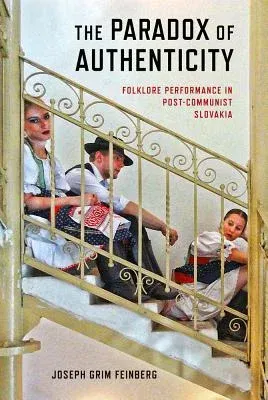Joseph Feinberg
(Author)The Paradox of Authenticity: Folklore Performance in Post-Communist SlovakiaHardcover, 24 July 2018

Qty
1
Turbo
Ships in 2 - 3 days
In Stock
Free Delivery
Cash on Delivery
15 Days
Free Returns
Secure Checkout

Part of Series
Folklore Studies in a Multicultural World
Print Length
256 pages
Language
English
Publisher
University of Wisconsin Press
Date Published
24 Jul 2018
ISBN-10
0299316602
ISBN-13
9780299316600
Description
Product Details
Author:
Book Format:
Hardcover
Country of Origin:
US
Date Published:
24 July 2018
Dimensions:
23.11 x
15.49 x
2.03 cm
ISBN-10:
0299316602
ISBN-13:
9780299316600
Language:
English
Pages:
256
Publisher:
Weight:
476.27 gm